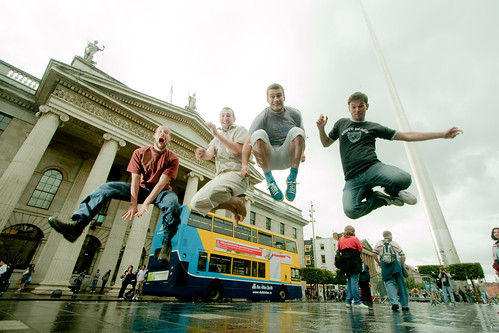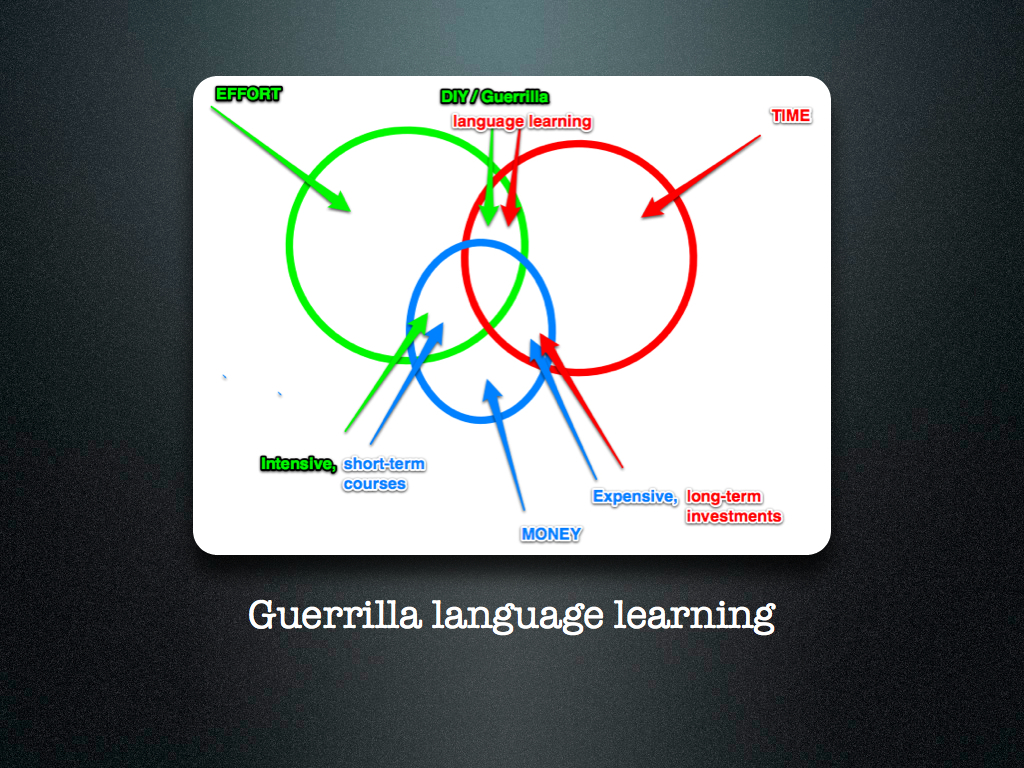Here I am, in London! The move went well and we’re slowly settling in. Lots of emotions, thoughts and new ideas surround our every move. Today I’m going to share a few of them with you – and I’m sure that in the near future this blog is going to be inspired by London to a great extent.
1. Sit Down and Pay Attention: Are Language Classes for Everyone?
This is what usually happens in a language class: people come in, sit down and spend most of their time sitting. There is some movement, maybe running even, if you’re lucky (or in a kids’ class) – but on the whole, the language learning affair is pretty static and sedentary.
There are several things wrong with that kind of approach. You might argue that it doesn’t cater to kinetic learners (people who, in Sir Robinson’s words, “had to move to think”). You may say that in the long run, it’s a boring way to learn (or do anything) and that it’s hard to pay attention. The most important thing, however, is that learning a language in a classroom completely ignores the benefits of the alternative style of picking up languages.
2. Look Lively Now: Streets and Awareness
Geoff Thompson is one of the most successful and interesting people I have never met.
He has had a number of interesting and “interesting” jobs – including 10 years spent working as a bouncer for UK clubs. This inspired him to start his own self-defence seminars, and to write several books. One of them, “The Art of Fighting Without Fighting,” (PDF) is available online – and I can assure you, it’s a fascinating read even if you’re not into fighting at all.
Here’s the thing that made me think: Thompson laments the fact that most people walk through the streets without any awareness at all. This gets them into situations in which defence is impossible. Therefore, the first step to fighting without fighting is awareness: choosing to cross the street, identifying the safe and dangerous situations and so on.
This – curiously enough – is just what could happen in language learning. If you come out on a foreign street expecting things to be exactly like in your classroom and coursebook, you will fail – painfully and quickly. But if you treat the street life as a foundation for – and extension of – your course, your awareness will be necessary and quickly rewarded.
3. Streetwise Language Learning
Your coursebook doesn’t tell you how people haggle in the town where you’re going.
Your teacher may have no idea what the accent is like in the part of the city you’ll visit.
Every fish, vegetable, house and tool may have completely different names in your neighbourhood than the ones given by your dictionary.
And that’s just the beginning.
Streets will teach you more than just the language you want to learn. They will show you other languages which have interacted with your chosen dialect. They will teach you the gestures and facial expressions that, invariably, replace and supplement the words. Finally, they’ll enrich everything with the unique flavour of this particular place and time – the genius loci which makes every language so much more palatable.
Of course it’s going to hurt and feel awkward. Of course learning at a language school is safer, clearer and less surprising.
But the illusion that “you will learn all your language here,” the myth of a perfect, all-encompassing language course is precisely that – an illusion and a myth.
There we are, folks – sorry if it’s rather chaotic and disorganized, that’s what London streets do to your thinking! Anyway, here’s a question: have you got a favourite street for learning languages? Share the secrets in the comment section!
(![]() Photo Credit: Éole Wind via Compfight)
Photo Credit: Éole Wind via Compfight)
Wiktor (Vic) Kostrzewski (MA, DELTA) is an author, translator, editor and project manage based in London. When he works, he thinks about languages, education, books, EdTech and teachers. When he doesn’t work, he probably trains for his next triathlon or drinks his next coffee.
BRAVE Learning (formerly known as 16 Kinds) is a lifelong learning and productivity blog. If you enjoy these posts, please check out one of my books and courses.
My recent publications, and my archive, is now all available on my new project: PUNK LEARNING. Hope to see you there!






